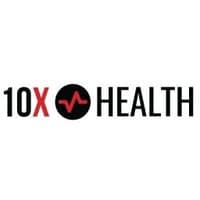With so many supplements out there, it can be tough to know which ones actually work. As we get older, our bodies might not absorb nutrients as well as they used to. That's where supplements can come in handy. This article will go over the top supplements that could help you live a longer, healthier life.
Key Takeaways
- Vitamin D is essential for bone health and may boost your immune system.
- Omega-3 fatty acids support heart health and can reduce inflammation.
- CoQ10 helps your cells produce energy and acts as an antioxidant.
- Probiotics are good for your gut health and can improve digestion.
- Magnesium is important for muscle and nerve function, as well as bone health.
1. Vitamin D
Vitamin D is crucial for many functions in the body. It helps with calcium absorption, which is essential for strong bones. It also supports the immune system, muscle function, and heart health. Vitamin D has anti-inflammatory, antioxidant, and neuroprotective properties that benefit brain health.
Benefits of Vitamin D
- Supports bone health by aiding calcium absorption
- Boosts immune function
- Enhances muscle function
- Promotes heart health
- Provides neuroprotective benefits
Precautions
Avoid taking vitamin D if you have high levels of calcium or vitamin D in your body, or if you have a condition that affects nutrient absorption.
Vitamin D is a key player in maintaining overall health and well-being. Ensuring adequate levels can have a significant impact on your longevity.
2. Omega-3 Fatty Acids
Omega-3 fatty acids are incredibly beneficial for overall health. Scientific research shows that they can reduce inflammation, lower the risk of all-cause mortality, positively impact heart health, and support cognitive function. All these benefits can contribute to a longer, healthier life.
Dosing Recommendations
- For men: 1,600 mg/day
- For women: 1,100 mg/day
Sources of Omega-3 Fatty Acids
- Fish oil (e.g., salmon)
- Avocados
- Walnuts
Benefits
- Reduces inflammation
- Lowers risk of all-cause mortality
- Improves heart health
- Supports cognitive function
Including omega-3 fatty acids in your diet can be a simple yet effective way to boost your overall health and longevity.
3. CoQ10
Coenzyme Q10 (CoQ10) is a vital antioxidant that supports the health of tissues and organs. It plays a key role in producing cellular energy and protecting against oxidative stress. As we age, our levels of CoQ10 naturally decline. This can lead to increased fatigue and a higher risk of age-related diseases.
Research indicates that CoQ10 supplementation can help manage and prevent conditions like neurodegenerative and cardiovascular disorders. It does this by reducing oxidative stress and inflammation, and by improving mitochondrial function.
A notable 4-year study involving 443 older adults found that taking CoQ10 along with selenium improved their quality of life. Participants experienced fewer hospital visits and slower physical and mental decline.
CoQ10 comes in two forms: ubiquinone and ubiquinol. Ubiquinol is easier for the body to absorb, making it a more effective supplement choice.
4. Probiotics
Probiotics are live bacteria and yeasts that are beneficial for your digestive system. They are mostly found in your gut, where they help maintain a healthy balance of microorganisms. A balanced gut microbiota can lead to better digestion, a stronger immune system, and reduced inflammation. Some studies even suggest that probiotics may help prevent age-related diseases.
Benefits of Probiotics
- Improved digestion and gut function
- Enhanced immune system
- Reduced inflammation
- Potential prevention of age-related diseases
Sources of Probiotics
You can get probiotics from fermented foods like yogurt, kefir, kombucha, sauerkraut, kimchi, tempeh, and miso. While it's best to get them through food, supplements are also an option. Some supplements contain up to 50 billion CFUs (colony-forming units), but your body may only absorb 20% to 30% of that.
Maintaining a balanced gut microbiota is crucial for overall health and may contribute to a longer, healthier life.
Dosing Recommendations
There is no daily recommended dose for probiotics, but taking them daily can help with various health concerns. Always consult your healthcare provider for personalized advice.
5. Magnesium
Magnesium is a vital mineral that plays a key role in many bodily functions. It helps with muscle and nerve function, blood sugar control, and bone health. Additionally, magnesium is linked to promoting longevity due to its various health benefits.
Health Benefits
- Supports cardiovascular health: Magnesium helps maintain a steady heartbeat and normal blood pressure.
- Maintains bone health: It is essential for bone formation and influences the activities of bone-building cells.
- Regulates blood sugar levels: Magnesium plays a role in insulin regulation and glucose metabolism.
Recommended Dietary Allowance (RDA)
Magnesium needs vary by age and gender. Here are the recommended daily amounts:
| Age Group | Males (mg/day) | Females (mg/day) |
|---|---|---|
| 14-18 | 410 | 360 (400 during pregnancy) |
| 19-30 | 400 | 310 (350 during pregnancy) |
| 31+ | 420 | 320 (360 during pregnancy) |
Precautions
While magnesium is generally safe, excessive intake can lead to side effects such as diarrhea, nausea, and abdominal cramping. It's important to stick to the recommended amounts and consult a healthcare provider before starting any new supplement.
Magnesium is a powerhouse mineral that supports many aspects of health, making it a valuable addition to your daily routine.
6. Curcumin
Curcumin, the active ingredient in turmeric, has been recognized for its potential health benefits. It is known for its strong anti-inflammatory and antioxidant properties. These properties make it useful in managing conditions like arthritis, depression, and digestive disorders.
Curcumin may also support brain health by reducing oxidative stress and inflammation, which can lower the risk of neurodegenerative diseases like Alzheimer's. Additionally, it shows promise in preventing age-related diseases such as heart disease, cancer, and diabetes.
Dosing Recommendations
While there is no standard dose for turmeric, the World Health Organization suggests an acceptable daily intake of 1.4 mg of curcumin per pound of body weight. This can be achieved through turmeric supplements.
7. Green Tea Extract
Green tea extract is derived from the leaves of the Camellia sinensis plant. It is a concentrated form of green tea, packed with powerful antioxidants like flavonoids and polyphenols, including epigallocatechin gallate (EGCG). These compounds help protect cells from damage and offer various health benefits.
Health Benefits
Studies suggest that green tea extract can reduce the risk of all-cause and cause-specific mortality, especially related to cardiovascular diseases. It may also help prevent neurodegenerative diseases like Alzheimer's and Parkinson's due to its neuroprotective effects, which are mediated by its antioxidant and anti-inflammatory properties.
Dosing Recommendations
While there are no official dosing guidelines, research indicates that a daily intake of 300-800 mg of green tea extract can be beneficial.
Precautions
Consult your doctor before taking green tea extract if you have conditions like anemia, bleeding problems, diabetes, glaucoma, heart or intestinal issues, mental/mood disorders, low calcium levels, or osteoporosis.
Green tea extract is a potent supplement that offers numerous health benefits, but it's essential to use it wisely and consult a healthcare provider if you have any pre-existing conditions.
8. L-Ergothioneine
L-Ergothioneine is a special amino acid that our bodies can't produce on their own. We need to get it from the foods we eat, like white button mushrooms. This amino acid is crucial because it helps fight oxidation at the cellular level. Oxidative stress is one of the main reasons we age, and our levels of L-Ergothioneine decrease as we get older.
Why is L-Ergothioneine Important?
Scientists believe that L-Ergothioneine is vital for our health because it helps protect our cells from damage. This protection is important for keeping our bodies healthy as we age.
How to Get L-Ergothioneine
Since our bodies can't make L-Ergothioneine, we need to get it from our diet. Foods rich in this amino acid include:
- White button mushrooms
- Beans
- Oats
- Liver
Benefits of L-Ergothioneine
L-Ergothioneine offers several benefits, such as:
- Reducing oxidative stress
- Protecting cells from damage
- Supporting overall health as we age
Including L-Ergothioneine in your diet can be a simple way to help your body fight the effects of aging. Make sure to eat foods rich in this important amino acid to support your long-term health.
9. Resveratrol
Resveratrol is a powerful antioxidant found in grapes, berries, peanuts, and red wine. It is known for its potential to promote longevity by activating enzymes called sirtuins. These enzymes play a key role in cellular health and aging.
One of the most exciting benefits of resveratrol is its ability to mimic the effects of a calorie-restricted diet. Calorie restriction has been shown to support a longer lifespan, but it can be hard to maintain. Resveratrol offers a simpler way to achieve similar results without the need to count calories.
When choosing a resveratrol supplement, look for the biologically active form known as trans-resveratrol. This form is more effective and often combined with other nutrients like fisetin and quercetin for added benefits.
Resveratrol helps fight oxidizing free radicals that can damage your skin and heart at the cellular level, making it a valuable addition to your daily routine.
10. Nicotinamide Mononucleotide (NMN)
Nicotinamide Mononucleotide (NMN) is a compound that plays a crucial role in the production of Nicotinamide Adenine Dinucleotide (NAD+), an enzyme essential for healthy cell function. Boosting NAD+ levels through NMN supplements may help combat aging and promote overall well-being. However, it's important to note that the US Food and Drug Administration (FDA) has stated that NMN cannot be marketed as a dietary supplement because it is being investigated as a drug.
Benefits of NMN
- Supports healthy aging by boosting NAD+ levels
- May improve energy production at the cellular level
- Could enhance tissue health and DNA repair
Considerations
- NMN is currently under investigation as a drug, so it cannot be sold as a dietary supplement in the US
- Nicotinamide Riboside (NR) is an alternative that is still available and may offer similar benefits
NMN and NR are both precursors to NAD+, but only NR is currently allowed to be marketed as a supplement in the US.
Conclusion
In conclusion, choosing the right supplements can play a significant role in promoting longevity and overall well-being. As we age, our bodies may need a little extra help to get the nutrients they require. Supplements like probiotics, omega-3 fatty acids, magnesium, CoQ10, vitamin D, green tea extract, and curcumin have shown promise in supporting healthy aging. However, it's important to remember that everyone's needs are different. Always consult with a healthcare professional before starting any new supplement regimen. By making informed choices and seeking personalized advice, you can take meaningful steps towards a healthier, longer life.
Frequently Asked Questions
What is Vitamin D and why is it important for longevity?
Vitamin D helps your body absorb calcium, which is important for bone health. It also supports your immune system and may help reduce the risk of chronic diseases.
How do Omega-3 fatty acids benefit aging individuals?
Omega-3 fatty acids are good for heart health. They can lower inflammation and may help protect against age-related diseases like Alzheimer's.
What role does CoQ10 play in anti-aging?
CoQ10 helps produce energy in your cells. It acts as an antioxidant and may improve heart health and reduce the signs of aging.
Why are probiotics considered beneficial for longevity?
Probiotics are good bacteria that help keep your gut healthy. A healthy gut can improve digestion and boost your immune system, which is important as you age.
How does magnesium contribute to a longer life?
Magnesium is important for many bodily functions, including muscle and nerve function. It also helps keep your heart healthy and your bones strong.
What are the benefits of taking curcumin supplements?
Curcumin, found in turmeric, has anti-inflammatory properties. It may help reduce the risk of chronic diseases and improve brain health.
























